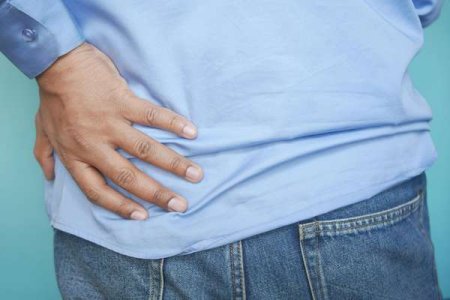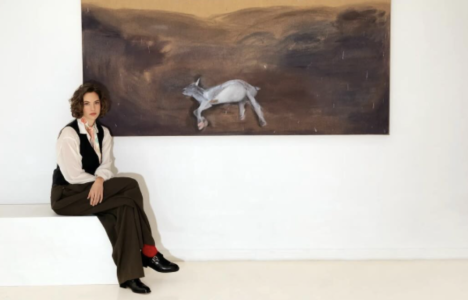Are you at risk for osteoporosis? Here’s what you need to know.
- Replies 0
As we age, our bones tell a story of the life we've lived. They carry the weight of our experiences, our triumphs, and our challenges.
But for many Americans seniors, particularly women, there's a silent narrative that could be unfolding within their bones—a condition known as osteoporosis. It's a tale that often goes untold until a sudden fracture reveals the plot twist nobody wanted. How do you know if you’re supposed to get yourself checked?
Osteoporosis is a condition that weakens bones, making them fragile and more likely to break.
It's often called a “silent disease” because you may not know you have it until a minor fall or, sometimes, even a sneeze or cough can cause a fracture. These fractures typically occur in the hip, wrist, or spine and can have life-altering consequences.
The US Preventive Services Task Force (USPSTF), a panel of medical experts, has recently updated its guidelines on who should be screened for this stealthy bone thief.
Women aged 65 and older are now advised to undergo bone density scans to check for osteoporosis. But it's not just a concern for women—men are also at risk, although the task force found insufficient evidence to recommend routine screening for them.

For postmenopausal women under 65, the USPSTF suggests that a risk assessment questionnaire can help determine the need for a scan. Factors that put you at higher risk include:
- Low body weight
- A family history of fractures, particularly broken hips
- Smoking cigarettes
- Excessive alcohol consumption
If you have one or more of these risk factors, it's time to talk to your doctor about whether you need a bone density test.
Dr. Esa Davis, a task force member and professor at the University of Maryland, Baltimore, emphasizes the importance of screening.
Osteoporosis can lead to disability, chronic pain, loss of independence, and even death. Research shows that 21% to 30% of people who suffer a hip fracture die within a year—a sobering statistic that underscores the need for early detection and treatment.
Although there are a few obvious symptoms such as stooped posture, loss of height, and discomfort in the bones, these can also signal to a variety of illnesses like arthritis.
“Osteoporosis is a serious bone disease that occurs when the body loses too much bone, makes too little bone or both,” stated Dr. Andrea Singer, chief medical officer of Bone Health & Osteoporosis Foundation.
Source: @qmuniversity / Tiktok.
The term osteoporosis screening refers to use of bone density, x-ray studies or other tools to identify persons at an increased risk of fractures or bone breaks,” Dr. Thomas Weber, an endocrinologist at Duke University Medical Center, said.
The results can help your healthcare provider make decisions about your risk of fractures and the need for medication.
Despite the clear benefits of screening, it's underutilized. A large study analyzing insurance claims data found that fewer than 25% of women aged 65 and older without a diagnosis of osteoporosis were screened.
And a report from the National Osteoporosis Foundation revealed that only 9% of women and 5% of men on Medicare received a bone density test within six months following a new fracture.
Recent updates to the screening guidelines come at a time when many Americans are using prescription weight loss medications, which can impact bone health.
Drugs like semaglutide–active ingredient in weight loss drugs like Ozempic and Wegovy, and tirzepatide–found in Zepbound, have been linked to decreases in bone density when not paired with exercise.
If you're considering such medications, especially if you're a woman over 65, it's crucial to have a bone density test before starting treatment.
While osteoporosis is not curable, it is both preventable and treatable. Medications can stabilize or improve bone density, reducing the risk of fractures by up to two-thirds, depending on the drug and fracture site.
Universal prevention measures include:
- A healthy diet rich in fruits, vegetables, and calcium-rich foods like milk, yogurt, and cheese.
- Avoiding excessive smoking and alcohol consumption.
- An active lifestyle with strength training, weight-bearing aerobic exercises, and balance training to reduce fall risk.
- Adequate intake of calcium, vitamin D, and protein.
For those who struggle to get enough calcium or vitamin D from their diet or sunlight, supplements may be necessary.
Source: Sharp HealthCare / Youtube.
However, a large clinical trial in 2022 found that vitamin D supplements don't prevent fractures in healthy older adults, so it's best to consult with your doctor about your specific needs.
If you're over 60, now is the time to take your bone health seriously. Review the updated screening guidelines and assess your risk factors.
Talk to your healthcare provider about whether a bone density test is right for you. And remember, it's never too late to adopt healthier lifestyle habits that can strengthen your bones and your overall well-being.

How do you keep your bones healthy? Share your experiences and strategies for maintaining bone health in the comments below!
But for many Americans seniors, particularly women, there's a silent narrative that could be unfolding within their bones—a condition known as osteoporosis. It's a tale that often goes untold until a sudden fracture reveals the plot twist nobody wanted. How do you know if you’re supposed to get yourself checked?
Osteoporosis is a condition that weakens bones, making them fragile and more likely to break.
It's often called a “silent disease” because you may not know you have it until a minor fall or, sometimes, even a sneeze or cough can cause a fracture. These fractures typically occur in the hip, wrist, or spine and can have life-altering consequences.
The US Preventive Services Task Force (USPSTF), a panel of medical experts, has recently updated its guidelines on who should be screened for this stealthy bone thief.
Women aged 65 and older are now advised to undergo bone density scans to check for osteoporosis. But it's not just a concern for women—men are also at risk, although the task force found insufficient evidence to recommend routine screening for them.

Women aged 65 and over in the US are advised to undergo a bone density scan to screen for osteoporosis as per updated guidelines from the US Preventive Services Task Force. Image source: Towfiqu Barbhuiya / Pexels.
For postmenopausal women under 65, the USPSTF suggests that a risk assessment questionnaire can help determine the need for a scan. Factors that put you at higher risk include:
- Low body weight
- A family history of fractures, particularly broken hips
- Smoking cigarettes
- Excessive alcohol consumption
If you have one or more of these risk factors, it's time to talk to your doctor about whether you need a bone density test.
Dr. Esa Davis, a task force member and professor at the University of Maryland, Baltimore, emphasizes the importance of screening.
Osteoporosis can lead to disability, chronic pain, loss of independence, and even death. Research shows that 21% to 30% of people who suffer a hip fracture die within a year—a sobering statistic that underscores the need for early detection and treatment.
Although there are a few obvious symptoms such as stooped posture, loss of height, and discomfort in the bones, these can also signal to a variety of illnesses like arthritis.
“Osteoporosis is a serious bone disease that occurs when the body loses too much bone, makes too little bone or both,” stated Dr. Andrea Singer, chief medical officer of Bone Health & Osteoporosis Foundation.
Source: @qmuniversity / Tiktok.
The term osteoporosis screening refers to use of bone density, x-ray studies or other tools to identify persons at an increased risk of fractures or bone breaks,” Dr. Thomas Weber, an endocrinologist at Duke University Medical Center, said.
The results can help your healthcare provider make decisions about your risk of fractures and the need for medication.
Despite the clear benefits of screening, it's underutilized. A large study analyzing insurance claims data found that fewer than 25% of women aged 65 and older without a diagnosis of osteoporosis were screened.
And a report from the National Osteoporosis Foundation revealed that only 9% of women and 5% of men on Medicare received a bone density test within six months following a new fracture.
Recent updates to the screening guidelines come at a time when many Americans are using prescription weight loss medications, which can impact bone health.
Drugs like semaglutide–active ingredient in weight loss drugs like Ozempic and Wegovy, and tirzepatide–found in Zepbound, have been linked to decreases in bone density when not paired with exercise.
If you're considering such medications, especially if you're a woman over 65, it's crucial to have a bone density test before starting treatment.
While osteoporosis is not curable, it is both preventable and treatable. Medications can stabilize or improve bone density, reducing the risk of fractures by up to two-thirds, depending on the drug and fracture site.
Universal prevention measures include:
- A healthy diet rich in fruits, vegetables, and calcium-rich foods like milk, yogurt, and cheese.
- Avoiding excessive smoking and alcohol consumption.
- An active lifestyle with strength training, weight-bearing aerobic exercises, and balance training to reduce fall risk.
- Adequate intake of calcium, vitamin D, and protein.
For those who struggle to get enough calcium or vitamin D from their diet or sunlight, supplements may be necessary.
Source: Sharp HealthCare / Youtube.
However, a large clinical trial in 2022 found that vitamin D supplements don't prevent fractures in healthy older adults, so it's best to consult with your doctor about your specific needs.
If you're over 60, now is the time to take your bone health seriously. Review the updated screening guidelines and assess your risk factors.
Talk to your healthcare provider about whether a bone density test is right for you. And remember, it's never too late to adopt healthier lifestyle habits that can strengthen your bones and your overall well-being.
Key Takeaways
- Women aged 65 and over in the US are advised to undergo a bone density scan to screen for osteoporosis as per updated guidelines from the US Preventive Services Task Force.
- Postmenopausal women under 65 with risk factors for bone loss should complete a risk assessment to determine if a scan is required.
- Osteoporosis is a serious condition where bones become weak and are more prone to fractures, which can lead to disability or even death.
- It is emphasised that osteoporosis can be prevented and treated, recommending a healthy diet, avoidance of excessive smoking and alcohol, an active lifestyle, and appropriate intake of calcium, vitamin D, and protein.
How do you keep your bones healthy? Share your experiences and strategies for maintaining bone health in the comments below!






